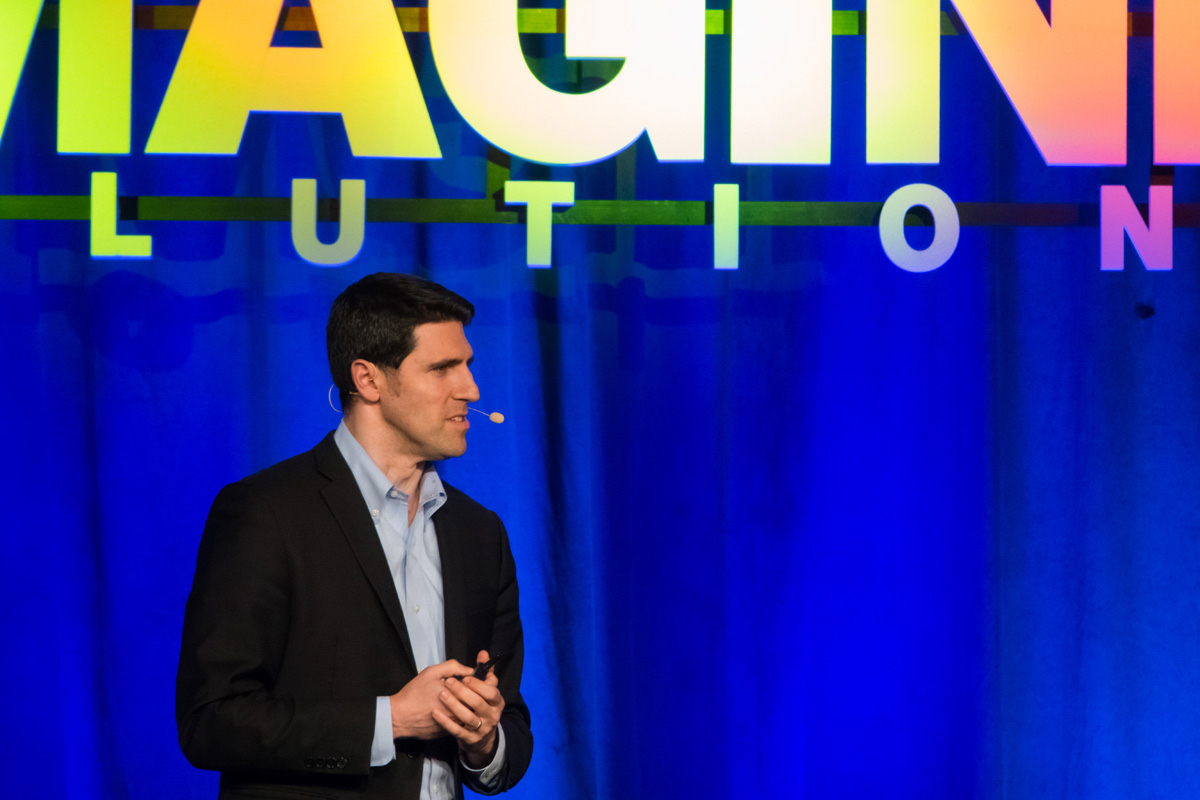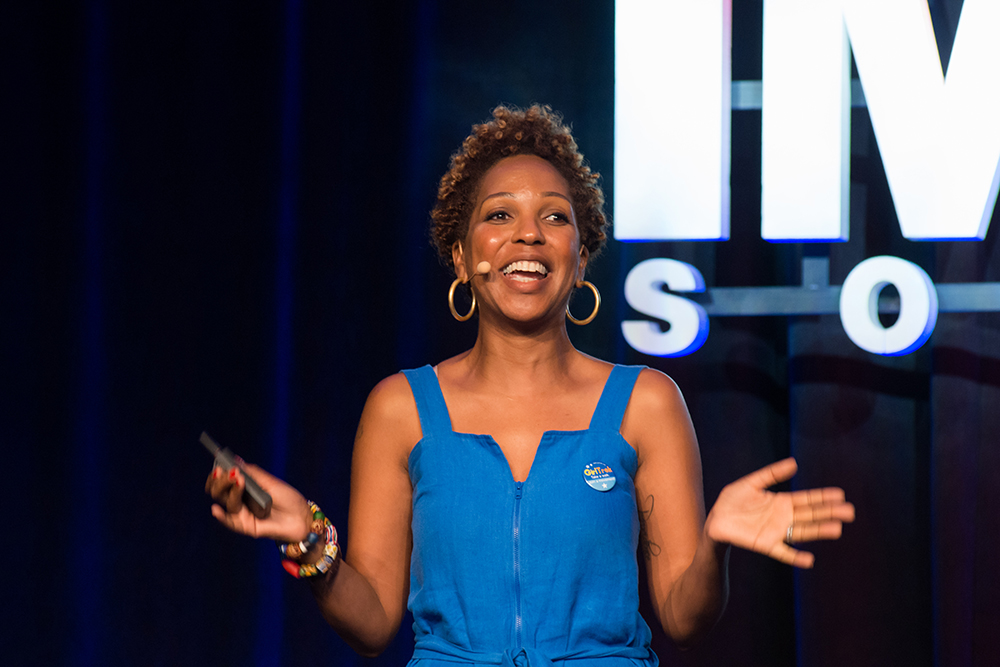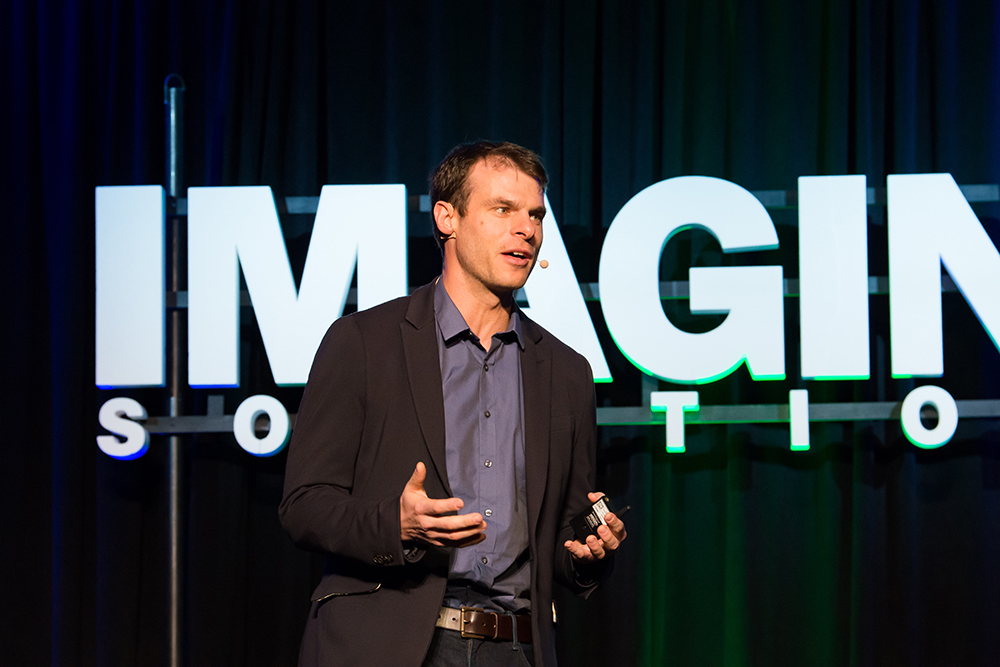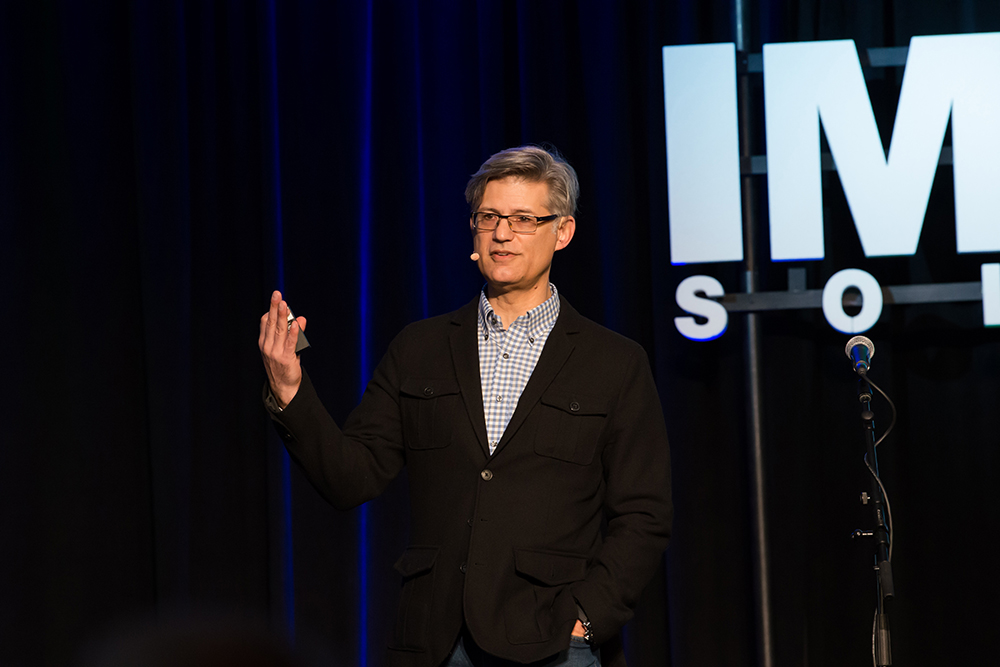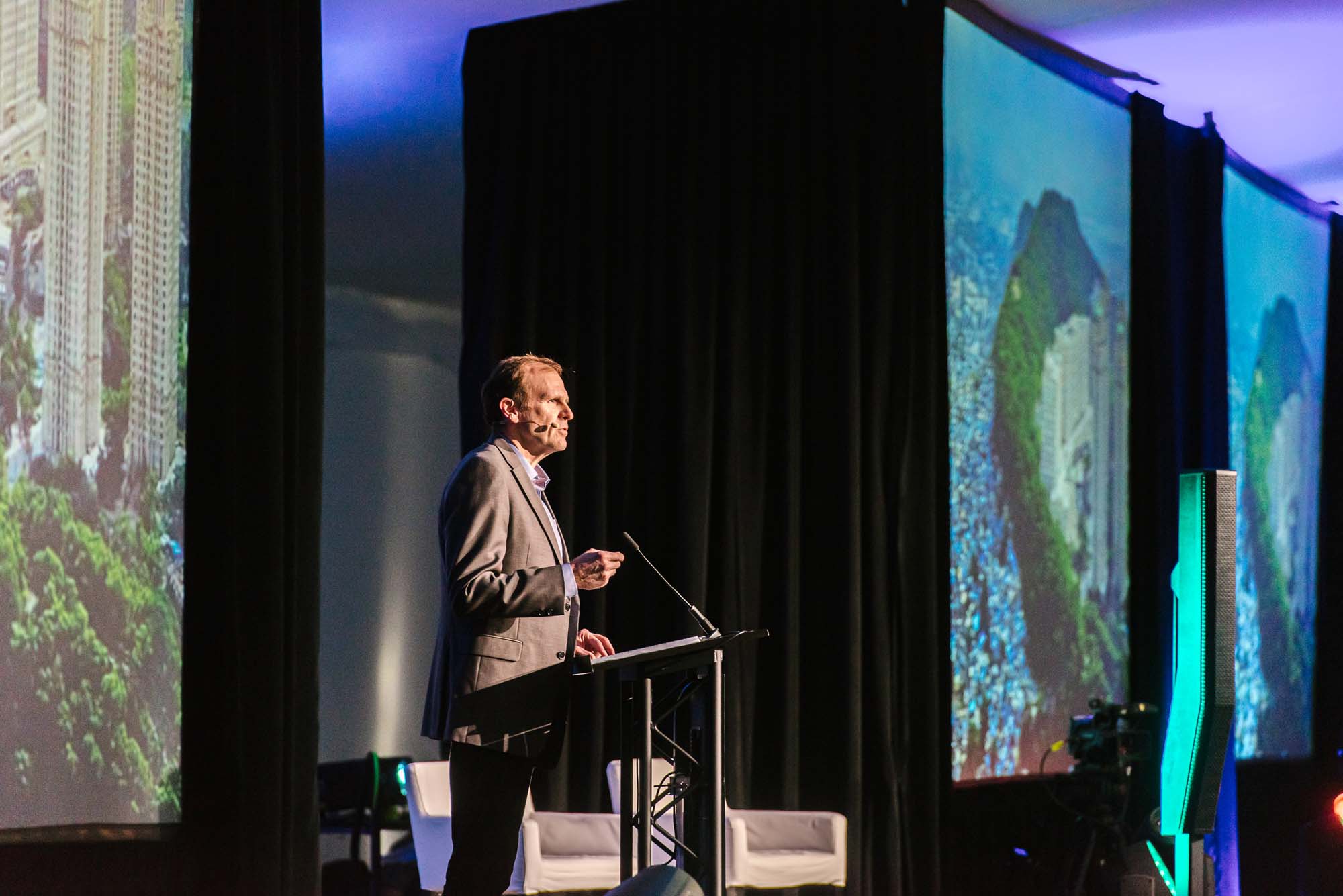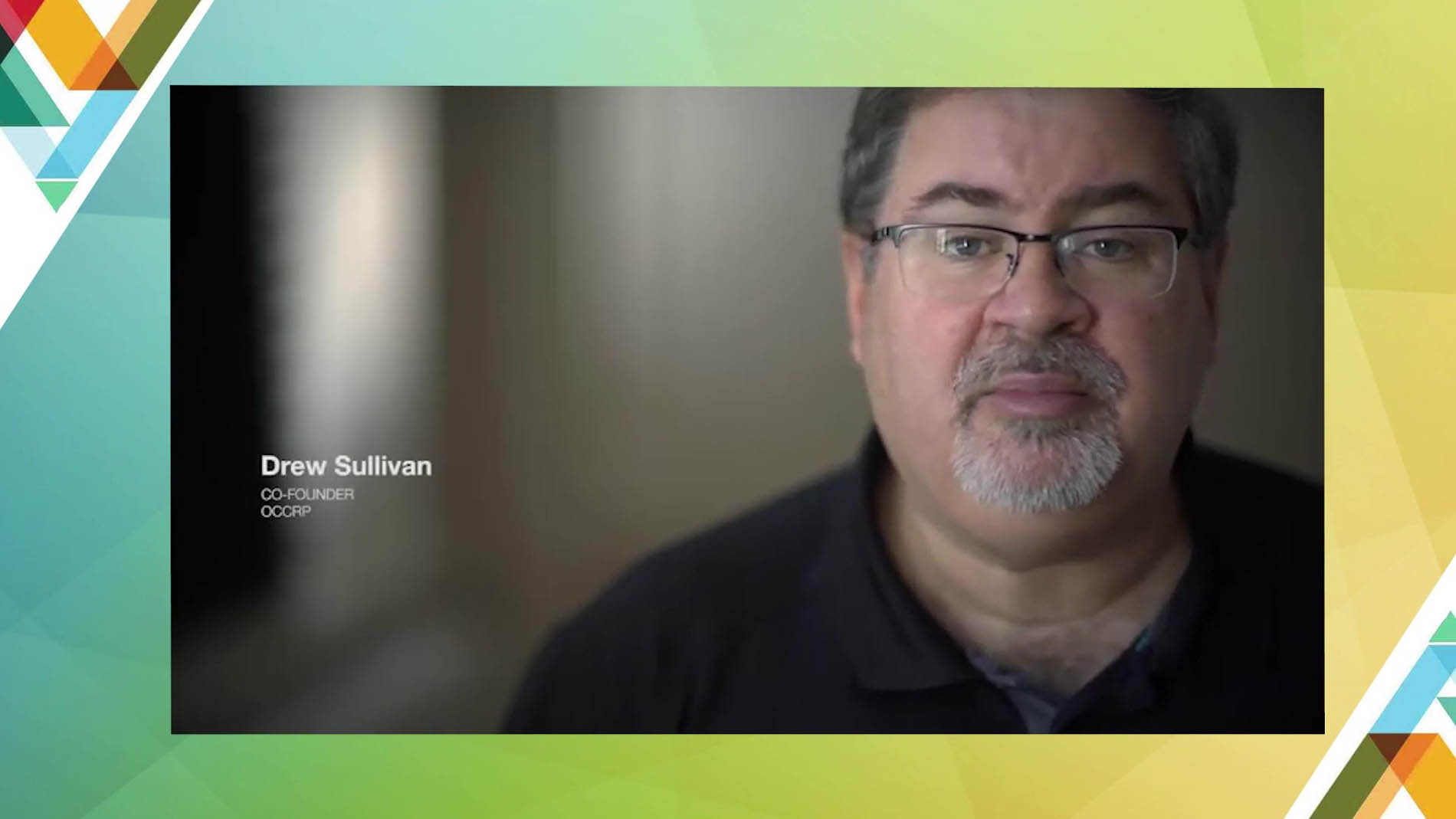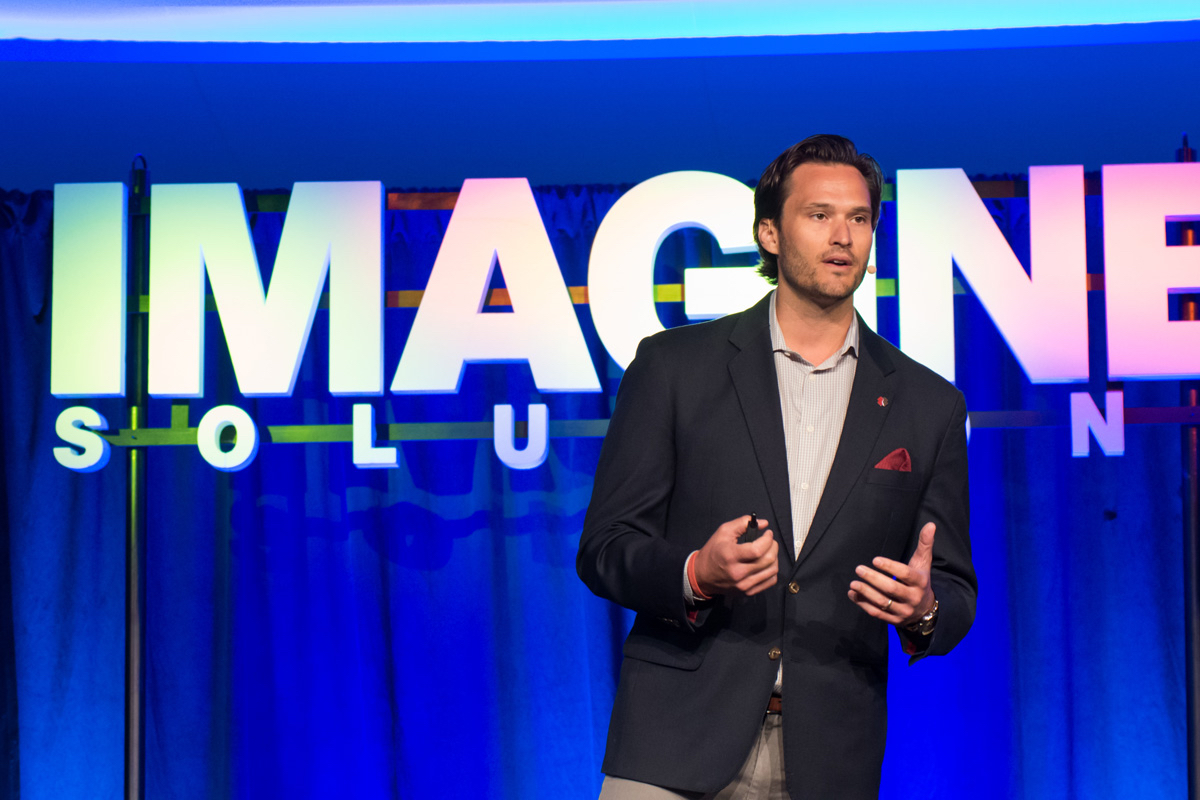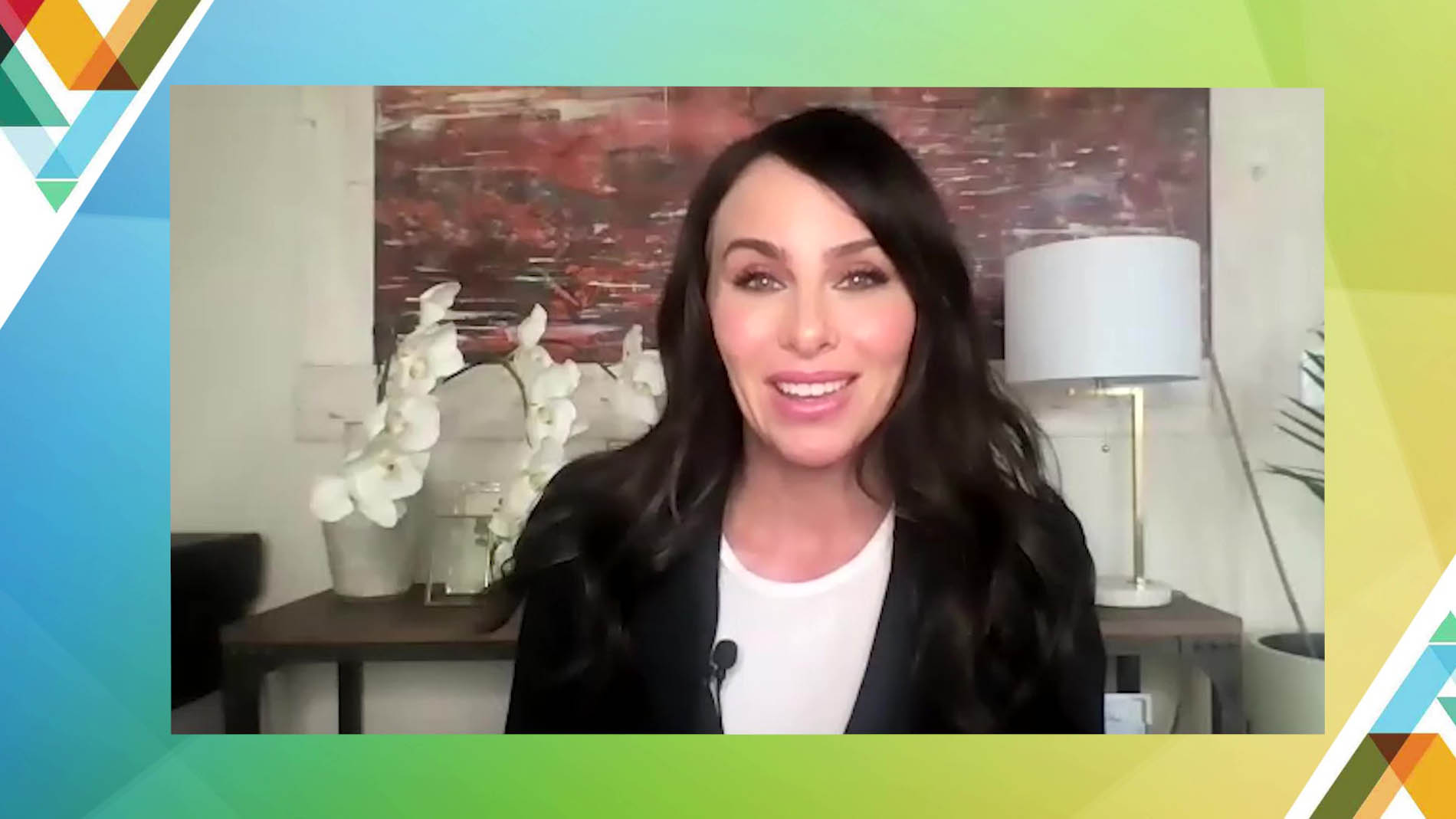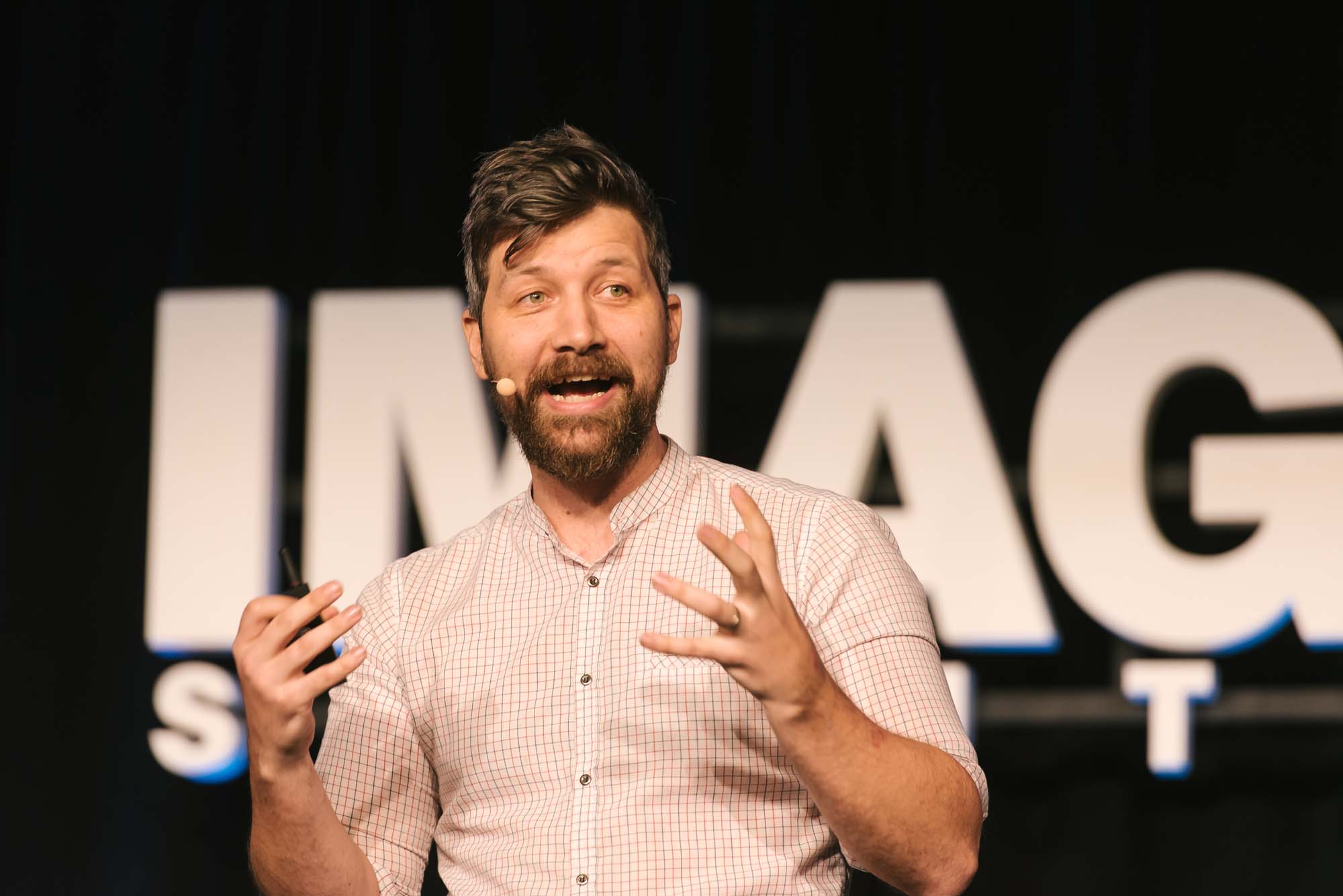Shining a Critical Light on Trafficking Crimes
Brad Myles has devoted his entire career to the problem of human trafficking. He explores to what extent human trafficking is connected to nearly all aspects of daily life. It is a problem few of us openly witness, but that goes on all the time just below the surface of our society. When a person falls into a trafficking situation, it is nearly always because of force, fraud, or coercion, exploiting the most desperate and vulnerable. The reality is, sadly and staggeringly, that trafficking of some kind is present in all communities. The most critical need for solutions is in victim identification. Polaris enables the public to openly report tips, and sorts through the data to find the victims.
00.04
[Music] all right well great to see you all today and thank you all for inviting Polaris here I'm not representing Polaris the snowmobile company I'm representing Polaris the nonprofit that fights human trafficking and slavery but hopefully what I'm gonna do in the next few minutes is one you leave these few minutes having learned something new about human trafficking too because we're here at imagine solutions hopefully I will give you some big ideas that could be solutions in the fight against human trafficking and three hopefully you see your direct role of how you could actually get involved in the fight against human trafficking and trafficking isn't just for those of us in these organizations to fight but it's for all of us to work on so I'd love to dive in I've been working on human trafficking for the last 16 years or so since 2002 right after I graduated from
01.01
undergrad and so now I kind of use this lens where I think about human trafficking and almost everything that I hear so sitting there in the audience all day today hearing all the amazing presentations we heard about natural disasters and I was thinking about how human trafficking sometimes increases after natural disasters and then we heard about technological innovations and AI and all these new technologies and I was thinking about how human trafficking is actually assisted by some of these new technologies that have gotten more effective at selling young girls on the internet and then we talked about longevity and do people feel a sense of purpose in their lives and how do we age well and how do we break down the the work education leisure paradigm and I thought about so many victims of human trafficking who aren't even thinking about living for some other person or finding their own sense of purpose they're just living day to day on this kind of Perpetual treadmill of how they try to exist then we talked about cancer and I was thinking about what's the link between cancer and human trafficking but
02.01
I actually realized that so many of the clients that we worked with the initial vulnerability that put them in a human trafficking situation is that their family went into debt to pay off one of their parents medical bills and then one of the kids actually fell for a get-rich-quick scheme and was forced into the sex trade because they their family had a family debt for their medical expenses so almost however you slice it the issue of human trafficking is becoming more and more of a vital issue that I think we should be talking about as a society that we should be trying to solve as a society and I'm so grateful that it's on the agenda today and in light of what we just heard about the divisions and and and the sides are becoming more extreme human trafficking is actually one of the last remaining bipartisan issues where both sides Republicans and Democrats both completely embrace this issue and there's a lot of common ground here so I think it's an area where we can find lots of solutions so starting off with first just a bit of Education one I
03.01
think everyone needs to know that there are two major types of human trafficking and trafficking could either happen for the sex trade or it could either happen for some sort of labor purpose and in the federal definition of trafficking it breaks it into sex trafficking and labor trafficking so when you hear me talking about this issue we'll be talking about one or the other these are the three major terms in the law that people talk about what makes a situation human trafficking it's either force or fraud or coercion and these are the the ways that a trafficker figures out a way to control their victims force is usually the violence fraud is lies coercion as threats and debt and so these are or it's either one or the other or the other so when you're looking at a trafficking situation you're asking yourself was there some sort of force was there some sort of fraud was there some sort of coercion why is this type of labor not normal voluntary labor that we're all involved in what makes it involuntary and it's the force fraud or coercion when we say our mission is to work on human trafficking this is
04.00
essentially what we're saying our mission is it's to work on miners who are being exploited in the sex trade it's to work on adults who are there in the sex trade by force fraud or coercion and anyone who's forced to work against their will in some sort of labor or service industry via force fraud or coercion so these are the three major buckets of human trafficking it doesn't necessarily require movement across borders it's not sex only and so when someone says they're working on human trafficking this is essentially what the issue is and there's lots of common misperceptions out there and some people think that the issue is sex only and they're shocked to hear about the forms of labor trafficking some people think that this is immigrants only and it's all about crossing the border and they're shocked to hear about this happens to u.s. citizens in US citizen youth right some people think it only happens at the Super Bowl because that gets reported in the media and they don't realize that this is closer to home than you think so these are some of the the major things that that we're dealing with every day but if one of the
05.01
paradigms I could encourage you to shift in your mind and we've heard about some amazing paradigm shifts throughout today is the paradigm that you might think that this is further away it's happening in another country it's happening in Cambodia and I'd invite you to start thinking about how is this here in almost every local community in America it's here in Naples it's in lots of lots of communities across America and it's not something that's far away and so that's the big shift I'll throw some statistics at you and these are not fake news these are real statistics study by the UN and the International Labor Organization about 25 victims 25 million victims of human trafficking worldwide in those three buckets when you add up bucket one of kids and bucket two of adults in the sex trade bucket three people forced into labor you get the number 25 million then when you add up the profits of their labor or the savings from not paying them you learn that human trafficking is actually a hundred fifty billion dollar
06.00
industry a year so human trafficking is big business and where we need solutions is that we hear that only less than 1% of victims who are in these situations get identified per year so 66,000 get out twenty five million are still stuck in this situation and so we're here to think about victim identification and how do we connect more victims to services how do we find more victims how do we figure out where this is happening how do we build new technologies to fight it this is one of the primary challenges that we need to fight as the human trafficking field so what is what is it about human trafficking one I would I would submit to you after working on this for 16 years it's a very dynamic crime it doesn't just stay still traffickers are adapting all the time if something changes in the field and the police gets smart about one thing the traffickers have already pivoted so we need real-time data to understand how the traffickers are changing to I'd submit to you that this is a very diverse crime there are multiple
07.00
different types of human trafficking it's not just all kids in the sex trade it's not just all illicit massage businesses it's a crime but that manifests itself in dozens of different ways I would submit to you also that the people who end up traffic tend to be the more vulnerable folks in our society people with big debt over their head people who were sexually abused as kids people who ran away and so trafficking tends to ensnare the people who are already the most vulnerable and lastly it's a business and that traffickers are in it to make money this is a financial crime at its core it's a business and it thrives on these principles where right now it is a very profitable business we heard about the hundred fifty billion but it's very low risk because Society and communities and law enforcement and nonprofits and others aren't really fully built to respond to human trafficking the way that were built to respond to other crimes and so the response is lagging behind and the traffickers perceive this
08.02
high risk at low profit so you've got drug dealers saying why would I deal drugs when I've got so many police units looking for me and the DEA looking for me I'm gonna migrate over to human trafficking when no one really knows how to fight it quite yet right so there's a there's this high profit low risk effort going on so Polaris we've been doing this for a number of years we've been working on this crime for about 15 years and we've worked on let's say about 35,000 cases of human trafficking we have data about each of those cases which means we have one of the largest data sets on this crime in the United States and I'll tell you about how we got that but one thing we could learn from that data set is that it's in its in suburbs it's in rural areas it's in wealthy areas it's in population centers we've gotten calls into our national hotline from all 50 states and so we analyzed these thirty five thousand cases and this was our big breakthrough that we came up with a few months ago late last year there are 25
09.00
major types of human trafficking in modern-day America and that the trafficker is essential subdivide into these 25 industries and that almost any single call or any single case that the police learn about or than a shelter works on or that we learn out about about on the hotline will fit into one of one of these 25 fact patterns it's like a restaurant that serves 25 dishes right and so when you start thinking about what are some of these types people forced into massage parlors people forced to sell magazines door-to-door people forced to work as a nanny for a home or for a diplomat people in the pornography industry actually where someone there in the porn film was actually they're forced against their will and tricked into it and someone said I already took a bunch of nude photos of you and if you don't go through at this porn film I'm actually gonna release these to your high school and embarrass you right so there's all these different ways to control people peddling and begging restaurants agriculture is a big one right seven major types of sex
10.00
trafficking 18 major types of labor trafficking in America so that's what the data analytics showed us when we analyzed this major data set so Polaris just mindful of time one of the major things that we do is we're a comprehensive organization that's combating this we're trying to build the field against human trafficking we're in touch with almost every organization across the country that works on this we're in touch with law enforcement across the country that works on this and what we're essentially trying to do the base of our mission is to flip that equation of high profit low risk and flip it so we're constantly thinking about what creates more risk for the traffickers what decreases their profits how do we partner with industries how do we motivate communities how do we partner with police because essentially we could make trafficking we could change the market dynamics or it's not rational to engage in the crime anymore right so we analyze data we learn about the essence of the crime we devise strategies of how to fight the crime and
11.01
then we take various actions we either go campaign against certain types or we try to prevent certain types or we try to respond to certain types by meeting victims needs so this is essentially our systemic change model that kind of governs what we do the biggest thing we do is the National Human Trafficking hotline and this is where we need you all's help because the national hotline is the 24/7 clearinghouse for how cases of human trafficking get discovered across the country is survivors call in community members see something and they call in I guarantee you here in this audience you all have had encounters with various things that may not have sat right to you you may have seen something when you're out to eat you may have heard about a neighbor's nanny down the street you may have seen someone knocking on your door selling magazines and it didn't feel right to you there's so many things and so we're getting flooded with tips into the national hotline we have 24/7 staffing and then we're sifting through those tips and responding to each of those cases so now you can call
12.00
us at that number you can text us at that number or you could chat us and and and and reach out to other ways but texting is a really unique way to fight trafficking because lots of people who are in a situation of human trafficking can't safely make a phone call because their trafficker is listening but they can hop on their phone and they could send a a quiet text and we could begin texting back and forth with them right we had a case where a girl had gotten kidnapped by a pimp she was sitting in the backseat of a car and he turned to her and he said I'm driving you to this other hotel and I'm gonna force you into the sex trade and she started kind of quaking with fear in the back seat of the car she looks up on Google and looks up report human trafficking into the into Google our texting numbers surfaced in the Google search field she started texting back and forth of us and saying I'm actually in the back of a car I think I'm about to get forced into the sex trade I'm driving across the state line this guy's really scary we're texting back and saying do you know where you are can you tell us the
13.00
make and model of the car can you tell us you know what you see outside the window what mile marker you are on we were able to figure out what car she was in contact the local police that we are in touch with tell them there was a crime in progress they hopped in their patrol cars and wound up pulling the guy over for speeding and within 10 minutes of the original text where she actually responded to us the car got pulled over and they ran the guy's name in the national crime intelligence realized he was a pimp with multiple warrants out for his arrest and we were able to get her out of that situation right that's the power of fighting human trafficking in the modern day with these modern day tools so we've been working on this issue for the past 15 years we've served about 800 victims we've passed laws in all 50 states I didn't really talk about our policy work today but policy is a big thing in fighting and trafficking too we've worked on about 40,000 cases of human trafficking now and now we know that there are these 25 major types so here are some ideas that I think is needed in the trafficking field one we studied every
14.01
country around the world and learned that only about 60 of them have human trafficking hotlines which means that the other 140 don't have human trafficking hotlines and the victims who are stuck in those situations really don't have a place to reach out or text and so they don't have this response system that we've built in the United States and so imagine a world where there's actually global human trafficking hotline coverage and no matter where someone is being victimized chances are they have a mobile device and chances are they can text or they can call and they could signal it they need help and some sort of response can be built that uses data analytics and global technology and and creates a modern-day Underground Railroad that doesn't rely on horseback and writing letters but that uses modern-day telecommunications technology and we can create global human trafficking hotline coverage that's one idea here's another idea I'd share with you traffickers don't kind of exist in their own little bubble where they use their own little flights and they use their own little
15.01
banks and they use their own little hotels traffickers are embedded into the same institutions that we all use right so they they bank at some of the major banks that we all Bank with they they post on social media just like we do - they fly on Airlines just like we do - they use the healthcare system just like we you - right so there are these major industries who want to be part of the fight against trafficking they don't want to be unwittingly used by traffickers and so now we've created this matrix and on the rows those are the 25 types and the columns are the industries that are used by traffickers and we analyze the data and we are able to fill in the matrix and now we've created the chess board and this is what it's going to take to fight trafficking look how many of the types use the finance and three so now we're partnering with the vertical of the finance industry about how to detect trafficking signals in in banks look how many of them use social media so we're partnering with Facebook about how pimps might be recruiting on Facebook look how many use the
16.01
transportation system to fly people around so we're partnering with Delta Airlines to fight trafficking so there are all these corporations that could be part of the fight against trafficking and we could begin fighting trafficking row by row or column by column and we can mobilize a whole ecosystem of different actors to fight trafficking where people see their own stake and they literally see their own swimlane so this is the the social change that Polaris is working towards then I want to end with these are some of the corporations were partnering with but I want to end with concrete things that you can concretely do because one of the biggest mental shifts that I hope you take away from today is that I hope you don't say well I'm glad there are guys like Brad fighting trafficking good good to learn about it I hope you actually kind of lean in in your seats and say actually I could be part of this like I might be one to discover a case or I might be able to pass a law or I know some pretty influential people I might be able to call them and say hey have you gotten involved in the fight against trafficking so I'd encourage you to know
17.01
the national hotline I'm happy to share these slides with everybody we could talk to Randy and Tom and others about how to get this out to you but learn the national hotline number and the and the vista texting number learn how to get involved in different policy fights and talking to City Council's and others learn about Polaris and the work that we're doing and see how you can get involved in this fight there's a great movie that just came out called I am Jane Doe I'd encourage you to watch that film but to close basically what what I'd say is this issue is closer than you think it's in our communities this issue needs all of us to to rise up and fight it and and create a movement against it and I hope that we we get to a point where we're all educated about it we understand what's going on we understand how real it is and then we all figure out how to partner in ways to fight it so I look forward to talking you all hopefully you'll come up and say hi to me and my colleague when we're here and thank you all for having us at this incredible event take care of

